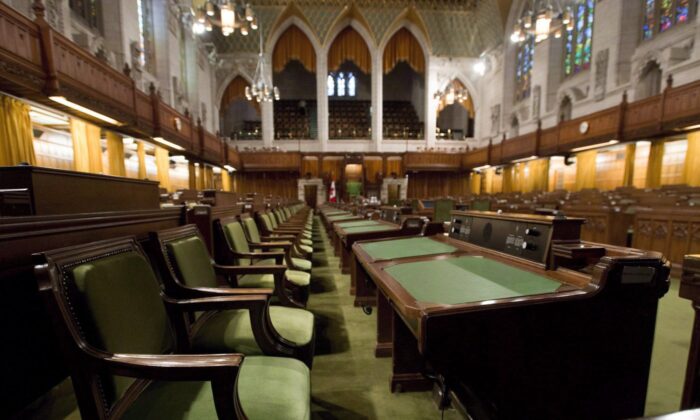Commentary
True, Canadian Conservatives’ traditional role is occasionally to penalty-kill for the Liberals after particularly flagrant arrogant ineptitude, pursuing social-democratic goals with humble managerial competence until the real Grits come roaring back. And they’re meant to know it.
After that telltale equivocal, stall-while-calculating-PR-angles, “Well,” he rattled off, “We’re going to cut bureaucracy, cut the consultants, cut foreign aid, cut back on corporate welfare to large corporations. We’re going to use the savings to bring down the deficit and taxes and unleash the free enterprise system. We’re going to repeal C-69, that’s the anti-energy law, to cause a massive resource boom in our country and make it attractive for business to do the value-added work here in this country. So part of it is going to be growing out of this mess. You know, take the debt to GDP ratio, the denominator has to grow.”
Or the numerator could shrink. But despite a trite Liberal scare campaign, Poilievre won’t cut the budget. Even though the Liberals increased spending from under $300 billion a decade ago to over $500 billion today, he sees nothing significant our bloated state can’t do, shouldn’t attempt, or both. Cutting bureaucracy is the last resort of the Conservative In Name Only who denounces big government and high taxes but praises massive vote-buying programs.
Poilievre has endorsed agricultural supply management and won’t repeal the Canada Health Act. And he was in cabinet under Canada’s last Conservative Prime Minister, Stephen Harper, whose cunning plan to make us a conservative country by stealth through slow, timid incremental policy changes produced nearly a decade of big deficits and baroque tax loopholes before we swapped fake for real Liberals again, giving Trudeau the reins for a decade.
True, Poilievre mentioned bringing back monetary discipline and incentivizing municipalities “to get building,” presumably housing. But monetary discipline isn’t something sane liberals oppose, housing isn’t a federal responsibility, and free marketeers remove distortions rather than tweaking them.
One concern about Poilievre is that he’s all campaign and no content. If so, you can partly blame the Liberal approach to public affairs, where policy is just a backdrop for partisanship, which certainly made mincemeat of his less deftly partisan predecessors. Perhaps the only kind of Tory leader able to defeat their permanent campaign is one who internalizes it. But it’s still bad.
Hence, what alarmed me most was Poilievre telling Peterson: “I’m going to have to put out a call to Canadians that they have to stay politically active. They can’t assume that simply by changing, by voting in an election that everything is going to, all the problems are going to reverse instantaneously. I will need people to put pressure on the Senate to implement my economic reforms.” Aaargh. What? How? And why?
He even said he needed corporate Canada to fight for policies good for their workers and “fire their incompetent lobbyists.” Rahr! But big corporations are vested interests who believe what’s good for their workers is government favours, so if they simply hire more competent lobbyists, will he act without them, quickly and decisively?
I doubt it. Peterson asked twice who he had in place to seize the moment, and Poilievre smoothly praised his former leadership rivals, current MPs, and potential candidates. But he didn’t mention making sure they had legislation drafted, understood bureaucratic delaying tactics, and would hit the ground running. Instead, he called for a permanent campaign to campaign for a campaign.
A widespread rule of thumb is after winning an election, you have about six months to make big changes before you lose momentum and the vested interests rally. But my rule of thumb is if you didn’t make big changes right away, you never had any momentum, inside or out.
Views expressed in this article are opinions of the author and do not necessarily reflect the views of The Epoch Times.
Please rewrite this sentence.
Source link







